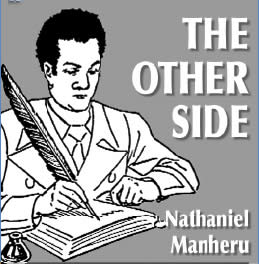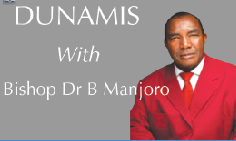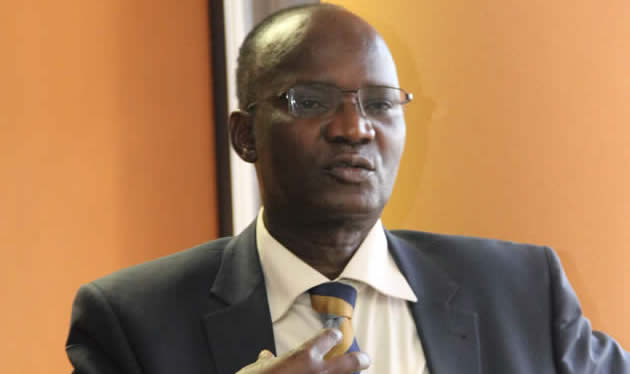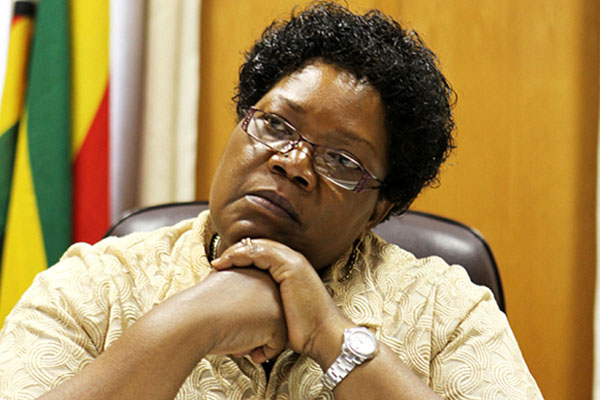Cuba: So distant a country, so close an ally, so important a lesson

 “CAN we think Zimbabwe out of this? Yes. If we abandon bigotry and bigots as a nation we can study and think Zimbabwe out of her present conflictual political condition that is seeing heroes and heroines of the struggle, orphans and the maimed being rubbished by individuals with dubious agenda and of questionable intentions.
“CAN we think Zimbabwe out of this? Yes. If we abandon bigotry and bigots as a nation we can study and think Zimbabwe out of her present conflictual political condition that is seeing heroes and heroines of the struggle, orphans and the maimed being rubbished by individuals with dubious agenda and of questionable intentions.
“Excitable and excited bigots and fundamentalists must not be allowed near the buttons of the destiny of a country . . .
“My view is that as Zimbabwean individuals and groups, we have put too much investment in bare-boned politics, occupied with elections and fist fights, and neglected the political where we must discipline our politics, and come up with rules of politicking that are not anti-life.”
Burying the hatchet
The above thoughts belong to Jethro Mpofu, or Dinizulu Mbikokayise Macaphulana as he prefers to call himself. I open my piece with a tribute to him. Read against his first instalment which made sad reading, this is a real sea-change, a dramatic return from the tribal to the national.
That is all I needed: an appreciation of problems affecting any part of our country, any part of our Nation, but without repudiating the Nation that houses all of us, and before which we are all equal and uniformly deserving.
That, however, bitter we are with politicians, with political parties or governing agendas, we should never repudiate Zimbabwe, call it derisive names even.
That instead, our bitterness and disappointment with leadership failures at whatever level, should express itself within parameters of nationhood and belongingness. We should love Zimbabwe to fault.
It is that standpoint which strengthens our politics against bad things, bad politicians. Never a stance which allows those same bad politicians, whoever you reckon them to be, to wrap themselves and their foibles with the Zimbabwe flag, to pose as defenders of the national.
The insecurity which must be cured
From such a standpoint, I am able to register to our rulers and governors that indeed, a key result of the debate I have led on the southern part of Zimbabwe is an unmistakable sense of insecurity and angst, a sense of alienation, possibly coming from the recent changes in the Zanu-PF leadership.
That sense of insecurity, however, founded, cannot be wished away, cannot be left unattended. The southern part of Zimbabwe must be made to feel it belongs, and there are many ways of doing it. But let us not trigger unhelpful reflexes in politicians, simply because we are expressing a good, valid, legitimate grievance badly.
Until this generation of politicians who fought each other once upon a time come to pass, the fault-line affecting the southern part of Zimbabwe will always be a sensitive one, will take long to heal, will be so easy to disturb.
But from the debate that ensued, not all is gloom and doom. It is clear a generation has already arisen, one which wants to put behind it that two-sided tragedy we call Gukurahundi, a generation already connected across this false but tragic divide.
It is already reshaping the nation beyond Gukurahundi.
That, in my view, is what has sobered all of us sinners in this needful debate. Thank you Mpofu. It takes a great mind, greater humility, to revise debating parameters in the middle of flying missiles. As for the two of us, well, nothing to worry about.
We will find each other eventually. After all, I am Jojo Mpofu, the same way he is Jeturo Shava. Children of the same clan, most likely from the same root, certainly in the same country, part of this one Nation. Icho!
Dalliance with America
Cuba, my most favorite country after my incomparable Zimbabwe, is finally emerging from over 50 years of a cruel economic embargo imposed on it by America. The Americans have had to recognise and make peace with Cuba.
That Cuba stands today, stands tall and proud against such stupendous odds, against an enemy so near, so strong, so vicious, is an incredible statement on collective human will and un-breakable fortitude. A statement on a rare kind of resistance underpinned by extraordinary organisational capacity.
America would have wanted to draw that small great island, that tiny giant of a Nation always twirling around her giant ear lobes, twirling irritably. That this did not happen was not for want of attempts and effort. No.
The story of America’s treachery against the Cuban people takes and combines incredible episodes, indeed illustrates how a spiteful foreign policy spawns an infrastructure and industry of murder in a superpower one would have thought only picks on super-enemies.
If there was ever a time America’s moral stature looked hopelessly shrunk, hopelessly small and underdeveloped, it was in its 50 years of unremitting hostility towards little Cuba. And so indefensible was America’s stance that even her closest hemispheric allies like Canada began to disown it. Much worse, her own citizens were daily questioning, nay, breaching this stance founded on gratuitous ill-will.
And in every fight, every battle which America raised against Cuba, the little great men and women of Cuba always emerged bigger, better, more victorious.
Dignity in resistance
To the rest of the world, the Third World especially, Cuba was never an object of pity; it was a statement in undaunted heroism, one that inspired, that challenged. Most admirable about the Cuban response was the integration of the moral, the political and the military.
And this rare compendium found excellent expression in high intellect: Cuba did not just resist, it theorised its resistance in ways that gave us a robust critique of global imperialism and western hegemony.
The Cuban government did not just resist imperialism; it moulded a resisting nation, a resisting people, resolutely armed against imperialism: intellectually, politically, militarily and emotionally. What is more, in spite of all manner of ill-will, Cuba grew opposed to the American government, but without being anti-American.
Cuba resisted America but without forgetting to love Cuba, which is why it was able to against a mighty aggressor. Cubans love and respect themselves, their country.
Undiminished solidarity
They also love the rest of the world! Cuba could have abnegated all responsibilities required of it by dictates of solidarity, plausibly citing her own desperate fight against deadly America.
It didn’t. It still supported liberation movements, Zimbabwean ones included.
A few years ago, I met in Havana a veteran Cuban internationalist who was part of a team of fighters seconded to help ZIPRA, seconded in the 1970s to secure the late Joshua Nkomo, our late Vice President, then as a co-leader of the Patriotic Front, and based in Lusaka, Zambia.
I never got his real Cuban name. Not even his ZIPRA comrades remember it. For they had given him a new name: Manyana. “Manyana was an adulteration of the Spanish equivalent of “tomorrow”, mañana!
The Cuban official language is Spanish, a language the ZIPRA comrades could not speak, the same way Manyana could not speak English, Ndebele or Shona, our national languages. The word “mañana” became a shorthand for everything between them.
Food was mañana; the enemy was mañana; love was mañana. And in the end this Cuban internationalist too, became mañana, only misspelt “Manyana” in deference to local phonetic rules! Together with the late Vice President, he had survived a deadly Rhodesian raid on Zimbabwe House in Zambia, the house that housed the late Vice President.
The Cubans fought in our struggle, the same way they participated in the defense of Angola against apartheid South Africa, eventually bloodying the nose of the Boers at Cuito Cuinavale.
That battle was a turning point, both for the war and for apartheid. And during that visit to Cuba, I was taken down a memorial acre at which dead Cuban internationalists are commemorated. The number of Cuban fighters who laid down their lives for our subregion was just staggering.
The debt cannot be repaid.
One Che Guevara
Elsewhere, including in Zimbabwe, the Cubans helped in many ways, principally in the health sector. They still do, to this day. Ordinarily, an embattled Nation disengages, becomes self-preoccupied, inward-looking. Not so with the Cubans, forever outward.
I could mention Che, Castro’s comrade-in-arm, and his escapades in the Congo. At the time of his deployment to the Congo, the Cuban Revolution was in dire straits; it faced real danger.
But that would not deter Cuba from assisting fellow comrades, often to frustrating, disappointing outcomes.
The mission to Bolivia ended Che’s life, in some place called VillaGrande, thanks to a CIA operation. Today Bolivia under Evo Morales has done much to atone for that treachery on its soil, both by placing Che and Cuba on high pedestal, and by pursuing and furthering Che’s vision in Latin America.
Like Maduro of Venezeula, Morales pays a heavy price for his grounded, revolutionary politics.
And in all his travails, Morales looks up to Cuba for inspiration. Such is the significance of Cuba in the hemisphere, beyond the hemisphere.
America the foil
All those countries cited above, and on whose soil Cuba left a huge footprint ironically bear scars of American atrocities. We do here as Zimbabweans. They inflicted wounds in Angola, in Congo, in Bolivia, in Venezuela.
The antipode to the Cuban debt we can never pay is the heinous crimes by America, crimes well beyond reparation.
But there is a feature in American assault of Cuba which I want to highlight, indeed which get us to relate to the Cuban experience in an unusually intimate way. America abstracted a huge part of Cuban population all to locate it in the diaspora, in Florida to be specific.
That community created abroad, but located near enough to the homeland, became the beachhead of American aggression, spectacularly during the so-called 1962 Cuban Crisis.
Clothed as an invasion of mainland Cuba by returnees, this assault on Cuba was American and American led. Its Cuban face allowed disavowal in case of failure, which indeed became the outcome.
But that policy of the “floridisation” of Cuban politics ensured all subsequent American subterfuges would always have a Cuban flair, would always be projected as coming from Cubans opposed to Castro and his revolution.
That became an enduring strategy of imperialism in its fight against nations and revolutions it did not want.
American audit trail
As I write this piece, I have before me a piece culled from the internet indicating America is set to audit a number of Zimbabwean “NGOs” which abused her funds.
So how does a Zimbabwean NGO abuse American money to the point of warranting an American government audit, albeit wrapped up as USAID? And in what way does the NGO remain non- governmental, remain Zimbabwean? Of course this confirms American patronage and funding, which these same “NGO” always denied.
Of course this confirms America’s meddlesome politics which the American government always denied. Much worse, it points to a bully attitude, a so-what-can-you-do-about-it stance.
There is also another piece which ran a few weeks back, again concerning the so-called Zimbabwean NGOs. These most favored institutions had retreated to map a new way forward in the wake of the MDC formations defeat.
At that gathering Dr Ruhanya published an advisory paper in which he urged the CSOs to change tact away from regime-change politics to something else. It was an extraordinary admission, one that confirmed the ruling party’s and Government allegation that foreign will was expressing itself politically through opposition and a battery of pseudo-NGOs.
Zimbabwe’s Floridas
Elsewhere in both UK and South Africa, the big story remained that of repatriating Zimbabweans, after more than a decade in those countries. A decade during which the narrative was that Zimbabwe was a hostile home for these “exiles” whose return would spell sure, painful death. In the case of South Africa, a Methodist Church was turned into a refugee centre which gave continually fresh images of externalised dissent, continually fresh reasons for greater damnation of the evil Mugabe regime! The British have been even more desperate. They have sent mission upon mission, to seek the cooperation of the Zimbabwean Government in a broad repatriation exercise. The empire is beginning to dismantle its Zimbabwe Florida, in the process bruising Zimbabweans who had offered themselves as willing fodder in the fight against their own country. Zimbabweans caught up in that situation find themselves in pretty much the same situation as the sprawling Cuban community across the ocean in Florida. As Cuba and America begin their courtship, these have become the grass underneath, set for a withering trampling.
Caveat Emptor!
And Cuba? Well, that is a mature, experience State born out of very harsh circumstances. It knows the wiles of America, which is why its phased re-engagement and carefully phased liberalisation of the economy speaks of a very careful State walking a new course so gingerly. Already, America’s focus is on the Cuban dissidents who would want to see the new-found rapprochement as a liberating experience, making America a symbol of liberation. The raw material for subverting the Cuban Revolution is there, which is why Cuba is very careful, watchful. Of course US was worried by Putin’s visit to Cuba, a development they see as bringing back the spectre of a second Cuban Crisis. But that point should not be stretched. America used a similar strategy of subversion-in-engagement against many countries, many revolutions, most notably Libya. I am sure Cuba has studied the tragedy of Libya and Gaddafi, all to know that it needs a very long spoon. Venceremos!










Comments